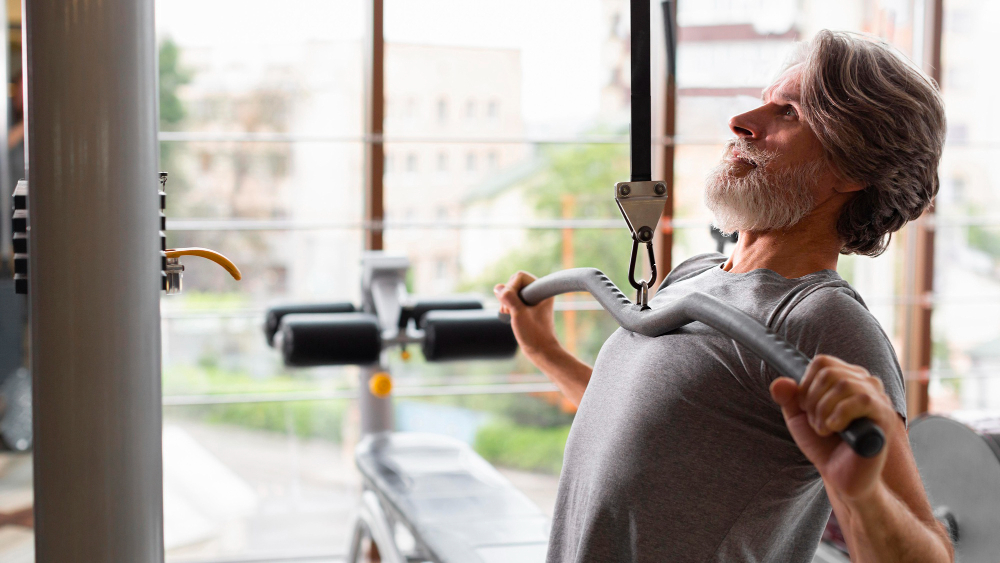
Should I worry about working out too hard?
Endless studies show the physical, mental and longevity-based benefits of working out, while plenty suggest that avoiding activity is bad. But read one headline about someone collapsing after a row, or talk to someone whose friend got stress fractures from running, and it sticks in the mind. So, how risky is training too hard? And is there a way to make sure you never cross that red line into dangerous territory?
The NHS recommends that healthy adults aim for at least 150 minutes of moderate-intensity activity, or 75 minutes of vigorous-intensity activity, a week – but doesn’t suggest where to stop. This is because the ability to handle excess exertion depends on many varied factors, including how much sleep, food, work and stress you are packing into your days.
The exact causes of “overtraining”, in the sense of doing too much over an extended period, are still being debated. Some experts theorise that it’s all about the central nervous system; others suggest the intestinal microbiota are involved. Whatever the case, it can play havoc with the rest of your life, making you moody, tired or injury-prone.
The best advice is to pay attention when you feel sluggish or under the weather and back off a bit. If you are a runner, this can also help with the common complaint of shin splints – when the muscles, tendons and bone tissue around the tibia became inflamed – or more serious stress fractures, which are tiny cracks in the bone itself. The latter, which can be due to a sudden increase in training volume and intensity, won’t heal until you ease off – so do your best to avoid them by not pushing too hard, too fast.
“The obvious risk factors are linked to impact and exertion,” says Steve Hoyles, a personal trainer and gym owner. “Running is a high-impact activity and analysis shows that novice runners suffer an average of 17.8 injuries per 1,000 hours, whereas in gym users the average is 5.3 injuries per 1,000 hours. Swimming and cycling are low‑impact, but offer limited strength benefits. Combining these with a form of resistance training would be helpful. Strong muscles, bones and connective tissues are more resistant to injury than weaker tissues, so prioritise some form of strength training, regardless of your exercise of choice.”
What about more serious issues? If you are concerned at all that physical exertion will overtax your body, check first with a medical professional. But if you don’t have existing problems, the chances of something going wrong are very low. A 2020 analysis from the American Heart Association on the benefits of exercise suggested that the most common cause of sudden cardiac death related to exercise in middle-aged and older adults was the presence of atherosclerosis, or plaque buildup in the arteries.
Crucially, men who don’t exercise regularly are most at risk of a cardiac event, while regular exercisers and women are at a “substantially” lower risk. Exercise in general lowers the risk overall. The story is similar for men and women at risk of stroke: a 2021 meta-analysis found that heavy physical exertion increased the risk of intracerebral haemorrhage, although not other kinds. More recent computer modelling also suggests that existing plaque buildup in the carotid arteries – we have two – can be dislodged by high‑intensity exercise.
What about the headline-making cases in which a young athlete suddenly has a cardiac event on the field or pitch? In most cases, it is caused by hypertrophic cardiomyopathy, a disease in which the muscle wall of the heart thickens. These events are mercifully rare, with a 2017 study concluding that the incidence of sudden cardiac arrest during competitive sports was 0.76 cases per 100,000 athlete-years, with 43.8% of the athletes surviving until they were discharged from hospital.
The common thread in all this is: don’t start out too hard. Exercise will improve your quality of life – and almost certainly your chances of living longer – but jumping straight off the couch into a punishing high‑intensity regime ups the chance of something going wrong. By easing in and increasing the difficulty gradually, you will learn to listen to your body, which can help to warn you if something does go wrong. By not thrashing yourself from the start, you will learn to love exercise – and do it for the long haul.
Source: Joel Snape The Guardian
Love this article and some very sound advice. Are you contemplating a new exercise regime and don’t know how to get started or what to do? At Altius PT we would be delighted to get you started with a plan to suit your needs and goals.
Maybe FitDad Body Plan – Altius (altiuspt.co.uk) is what you need to kick start you into action!

Leave a Comment
(0 Comments)